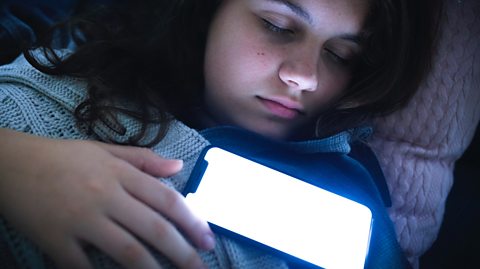Itãs been a demanding time for most of us since March 2020 and the lockdowns imposed during the Covid-19 pandemic. As parents weãve had to juggle probably more than weãve ever had to before ã being key workers or working from home, home-schooling, managing our childrenãs and our own anxieties, sadness, boredomãÎ and screen time!
An opinion poll commissioned by Parentsã Toolkit and Netmums has been exploring parents attitudes to, and experience of, mental health issues among their children in the aftermath of Covid-19. Many parents expressed concern about their childãs ability and desire to reintegrate back into school life, and into extra-curricular activities.
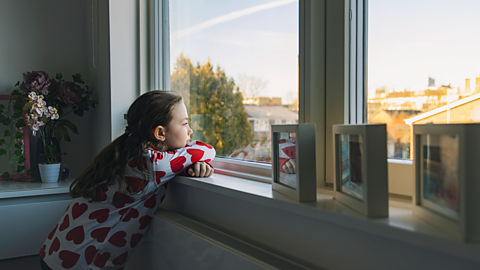
So, weãve teamed up with Roxane Caplan, who is Head of Services at youth mental health charity YoungMinds, for some top tips on how to manage your childãs wellbeing and get them back out there doing the things they love post-pandemic.
Roxanne says: ãOver the course of the pandemic, young people across all age ranges have struggled to cope with loneliness, anxiety, a loss of structure and fears about their future.
ãChildren ã like adults ã need time to adaptãÎ Reassure them and be kind. Encourage them to reflect and think about things they can do to make themselves feel better.ã

Three quarters of parents are worried about the mental health of their child
In the opinion poll of over 2000 parents, three out of four parents said they are sometimes or often worried about the mental health of their child. And almost a third of parents said they have noticed a deterioration in their childãs mental health in the last six months.
The main reasons those parents gave for the decline were: schoolwork pressures, poor quality sleep and friendship problems.
Roxanne says: ãItãs understandable and to be expected that some young people may struggle to be in groups or around other children after long periods of social distancing and isolation. Every child and young person will respond differently to difficult situations.
ãSome young people are likely to be particularly affected, including those with existing mental health problems, autism, and those who were already experiencing social inequalities.
"Some young people may have had limited contact with their peers and the outside world during the pandemic and may find loud noises, larger groups of people or daily tasks a little overwhelming, all of which might impact their confidence and ability to socialise with others.ã
Children ã like adults ã need time to adapt.
YoungMinds
But Roxane says not to worry ã itãs about being patient and listening to your child. Use that closeness that you may have built up during the pandemic to chat with your child regularly.
ãChildren ã like adults ã need time to adapt. Itãs important to give young people time and space, and regularly check in with how theyãre feeling. Take things gradually, and build up slowly.
ãIf you think your child is feeling disconnected from others around them and feeling anxious, try to help them talk through what theyãre feeling with you.
"Reassure them and be kind, encourage them to reflect and think about things they can do to make themselves feel better. It may help to talk to others about how theyãre feeling and to take their mind off things.
ãYou could also encourage them to find hobbies or interests that will help ease any anxiety theyãre feeling and encourage them to connect with others.

Talking to other parents can help reduce the stigma
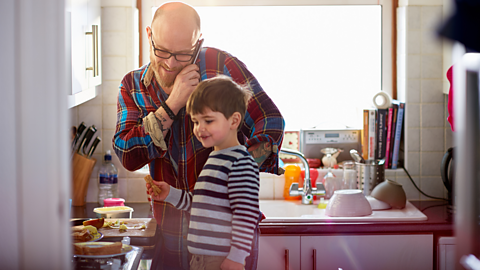
I think being as open as possible really helps in these situations.
Mum of a seven-year-old
In the opinion poll, over four in ten parents said their child has experienced challenges with their mental health.
One mum of a seven-year-old said: ãI think being as open as possible really helps in these situations. It can be uncomfortable, but I feel itãs the only way to reduce the stigma around mental health.ã
Roxanne says: ãMany parents find it helpful to reach out to other parents so they can talk through how they have handled difficult situations with their children and get support. You can connect with other parents by:
Using the to see if thereãs a local parent support group in your area in England and Wales, or contacting or using the in Scotland
Accessing peer and group parent support through
Joining Facebook or other online groups
Setting up your own parent support group using the
ãIf your child is struggling and needs some help, you may be feeling really worried as a parent ã and also like youãre not sure where to start. Remember that you and your child are not alone. You can also call the for advice.ã

Use our resources to help you have conversations with your kids

Roxanne says: "Talking to your child about how theyãre feeling can be hard. You might feel like you donãt know where to start or when a ãgood timeã to talk is.
"By taking 20 minutes to do an activity you both enjoy, you can create a relaxed space for getting the conversation started. If you have a younger child, try an activity like baking, drawing or playing ball, or for a teenager you could take a walk together, share music or go for a drive.
"Talking to your child about how theyãre feeling can be tough, especially if youãre concerned that they're having a hard time. You might not know what to say, or feel worried about how your child will react.
"It doesnãt matter what topic the conversation starts with ã itãs about the opportunity it gives you to talk about feelings and provide comfort."
Remember, you know your child best. Parentsã Toolkit has a wealth of information on how to support your children with their mental health and wellbeing, from primary school through to the teenage years. For more on conversation starters, read our article with child psychologist Laverne Antrobus about talking to your child about their wellbeing, and use the links below for other helpful tips around creating a support network and managing your childãs anxiety.
And donãt forget to look after your own mental wellbeing too.

For helplines, textlines and information on other mental health services, look at ôÕÑ¿èÓ Action Line. The ôÕÑ¿èÓ Headroom campaign also has links to lots of helpful content around mental health.

More from ôÕÑ¿èÓ Bitesize Parents' ToolkitãÎ

Parents' Toolkit
Fun activities, real-life stories, wellbeing support and loads of helpful advice - we're here for you and your child.

Child mental health: Parents have their say
How do parents feel about mental health in 2022? Read about the results of our survey, in partnership with Netmums, here...
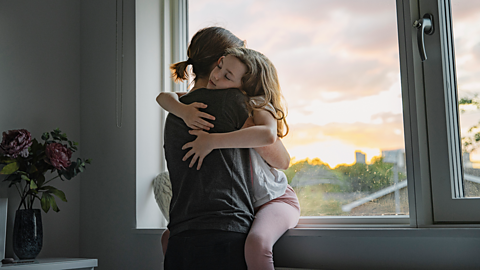
Mental health first aid kit for parents: Who to ask and what to do
Worried that your child needs help with their mental health? Here's how you can access professional help and support your child while you wait.
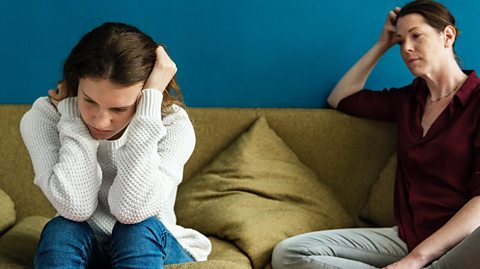
Anxiety: How you can help your child - with five simple coping techniques
Clinical psychologist Dr Anna Colton has some easy to use techniques for parents to help their child control anxious thoughts.
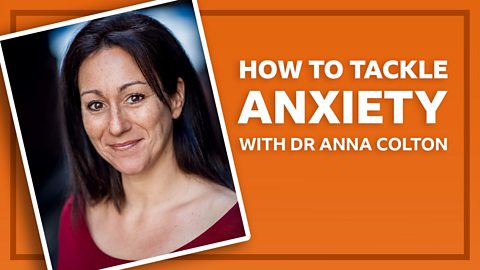
How to help your child deal with obsessive compulsive behaviours
Expert advice on helping to spot compulsive behaviours and support your child through their issues and anxieties.

Canãt sleep, wonãt sleep? Five ways to get your childãs sleep back on track
Advice and tips on helping your kids into healthier sleep patterns
